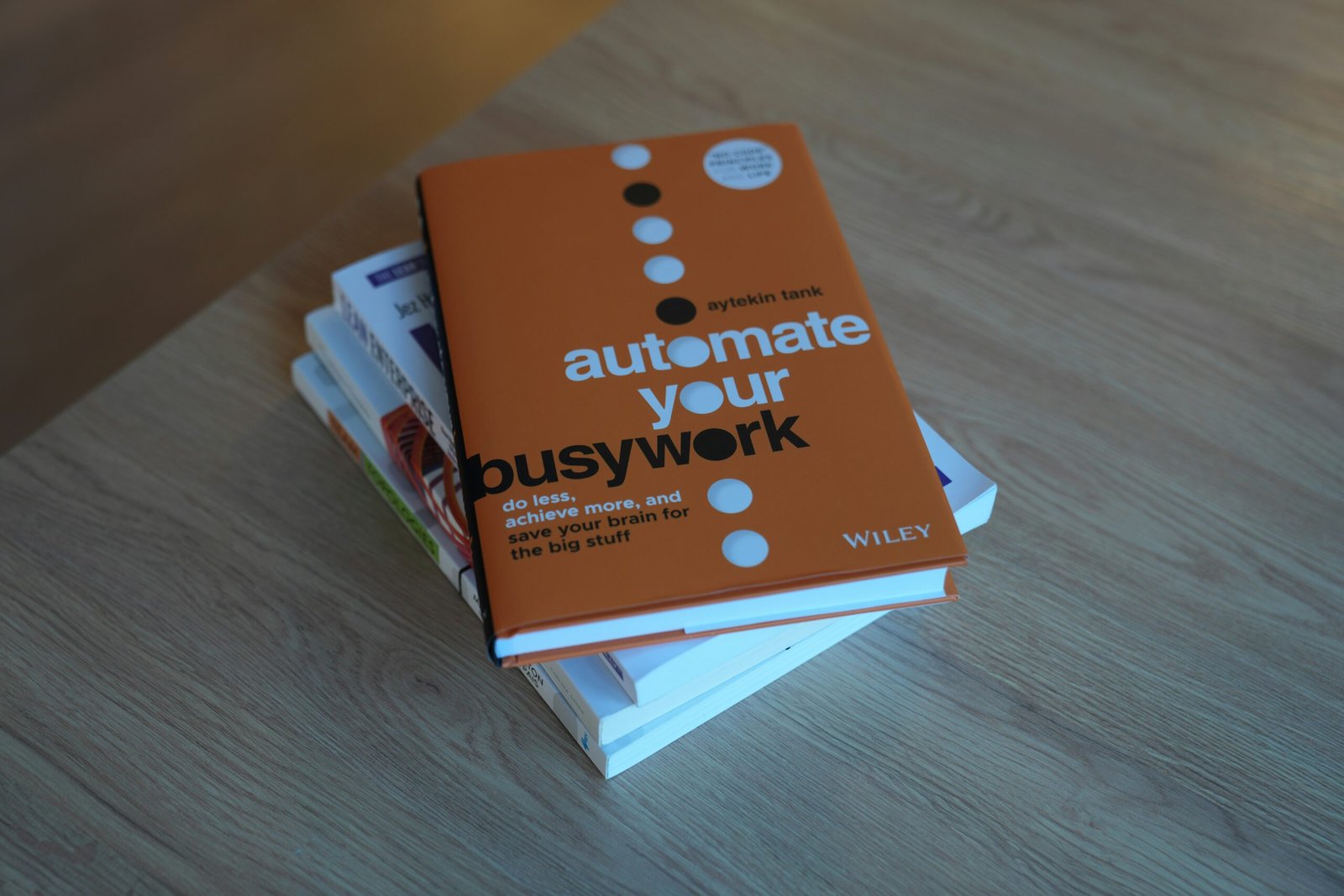Understanding the Role of CFOs in Accounting Automation
The role of Chief Financial Officers (CFOs) has undergone significant transformation in recent years, particularly in the context of accounting automation technologies. Traditionally viewed as the stewards of a company’s financial health, CFOs have been responsible for financial reporting, compliance, risk management, and strategic planning. However, the emergence of automation solutions has begun to reshape these responsibilities, urging CFOs to rethink their financial priorities. As automation technologies become increasingly integrated into financial processes, CFOs recognize their potential to enhance overall efficiency, accuracy, and decision-making.
CFOs today are increasingly aware of how accounting automation can streamline processes by reducing manual data entry and minimizing human error. This shift not only strengthens the reliability of financial information but also frees up valuable time and resources. With routine tasks automated, financial teams can allocate their efforts towards more strategic activities, such as analyzing financial data to inform business decisions. Consequently, CFOs are emerging as pivotal figures in driving digital transformation initiatives that align financial strategies with broader business goals.
Moreover, the benefits of accounting automation extend beyond enhancing efficiency; they also facilitate improved compliance and risk management. As regulations evolve, CFOs must ensure that financial practices remain in adherence to legal standards. Automated systems offer enhanced tracking capabilities, providing transparency and thorough documentation that are crucial for audits and compliance checks. The analytical prowess gained through automation also enables CFOs to better identify potential risks, therefore positioning them to make informed decisions that proactively address challenges. Overall, the evolving role of CFOs in accounting automation illustrates a broader trend towards integrating technology into financial management, ultimately elevating the strategic importance of the CFO position within organizations.
Top Priorities for CFOs Regarding Automation Tools
Recent survey findings reveal that Chief Financial Officers (CFOs) prioritize specific features when considering accounting automation tools. One of the foremost priorities is cost reduction. CFOs recognize the financial implications of manual accounting processes, which often incur hidden costs such as errors and inefficiencies. Automation tools that streamline workflows and minimize manual input thus hold significant appeal. The ability to decrease operational expenses while maintaining service quality is a primary goal for many organizations.
Additionally, improving accuracy is a critical concern. Traditional accounting methods can introduce human error, potentially skewing financial data and impairing decision-making processes. Consequently, CFOs seek automation solutions that provide enhanced accuracy in data entry and reporting, thereby ensuring a reliable financial landscape within the organization.
Another vital aspect is reporting efficiency. Automated reporting tools enable CFOs and their teams to generate real-time financial reports, which assists in making timely business decisions. The ability to visualize data through dashboards and customizable reports enhances the analytical capabilities of finance teams and aligns with strategic goals for transparency and informed decision-making.
Compliance with regulations also ranks high on the agenda. The dynamic nature of financial regulations necessitates that CFOs utilize automation tools that can promptly update to meet new requirements. These tools not only simplify compliance tasks but also safeguard the organization against potential legal issues arising from regulatory breaches.
Finally, enhancing data analytics capabilities is a vital aspect of modern accounting automation. CFOs are keen on tools that not only execute transactions but also provide valuable insights through advanced analytics. This feature empowers finance departments to identify trends, assess risks, and formulate strategies that support the organization’s long-term objectives. By focusing on these priorities, CFOs can leverage automation to foster a more efficient, compliant, and data-driven accounting environment.
Challenges Faced by CFOs in Implementing Automation
As organizations increasingly turn to technology for efficiency, Chief Financial Officers (CFOs) encounter various challenges when trying to implement accounting automation. One significant challenge is the resistance to change from staff, who may be accustomed to traditional processes. This can manifest as reluctance to adopt new tools or skepticism about the reliability of automated systems. Employees might express concerns regarding the implications of automation on their job security, leading to a divided workplace atmosphere that hampers the adoption of new technologies.
Another primary challenge is the integration of automation tools with existing systems. Many organizations rely on legacy software that may not be compatible with new automation solutions. This complexity can lead to significant delays in implementation, increased costs, and the potential for operational disruptions. It is crucial for CFOs to conduct extensive research on suitable automation platforms that can seamlessly work with their current ecosystem to mitigate this challenge.
Furthermore, skill gaps within the finance team pose a substantial barrier. As automation technologies evolve, there is a pressing need for specialized skills to manage and utilize these tools effectively. CFOs often struggle to recruit employees with the necessary expertise or provide adequate training to current staff, which can result in underutilization of the automation solutions in place. This skill gap not only affects the speed of adoption but can also diminish the return on investment anticipated from automation initiatives.
Lastly, data security remains a paramount concern for CFOs considering automation. The transition to automated processes increases the volume of sensitive financial data that is handled digitally, raising fears about potential data breaches or compliance issues. Developing a robust security framework and ensuring compliance with regulations are essential for alleviating these concerns. Ultimately, by recognizing and addressing these challenges, CFOs can facilitate a smoother transition to accounting automation.
Future Trends in Accounting Automation as Per CFO Insights
As organizations increasingly embrace technological advancements, the field of accounting automation is poised for significant transformation. Insights derived from recent CFO surveys indicate a notable shift towards the integration of artificial intelligence (AI) and machine learning (ML) within accounting practices. These innovative technologies have proven their capacity to enhance the efficiency and accuracy of financial reporting, enabling businesses to streamline their operations while minimizing human error.
The automation of routine accounting tasks, facilitated by AI and ML, allows for the quick processing of vast amounts of financial data. This capability promotes proactive decision-making, as CFOs can leverage real-time data to inform their strategic direction. Moreover, the emphasis on real-time data processing fosters a culture of agility within finance departments, ensuring timely insights that can drive business growth. It is expected that the reliance on data-driven financial strategies will intensify, compelling CFOs to become adept at interpreting and utilizing advanced analytics to shape organizational outcomes.
Furthermore, as the accounting landscape evolves, the role of the CFO will undergo considerable changes. No longer confined solely to financial oversight, the CFO will emerge as a strategic partner, engaging in cross-functional collaboration to capitalize on technological advancements. This shift necessitates a new skill set, as CFOs must be equipped to oversee automated processes and ensure their alignment with broader business objectives. In light of these trends, organizations that prioritize investments in accounting automation technologies are likely to gain a competitive edge in the marketplace.
In conclusion, the integration of AI and ML in accounting automation signifies a pivotal evolution in financial management practices. As CFOs adapt to these changes, their roles will expand to meet the demands of an increasingly data-centric environment, paving the way for innovative financial strategies that align with organizational goals.









